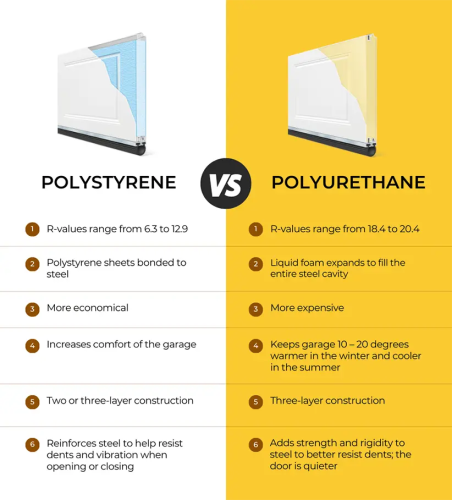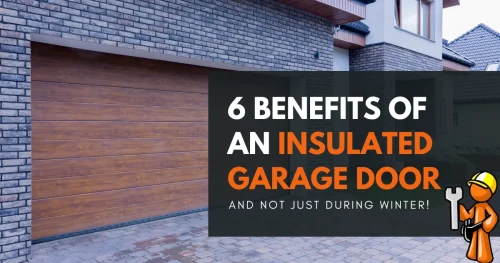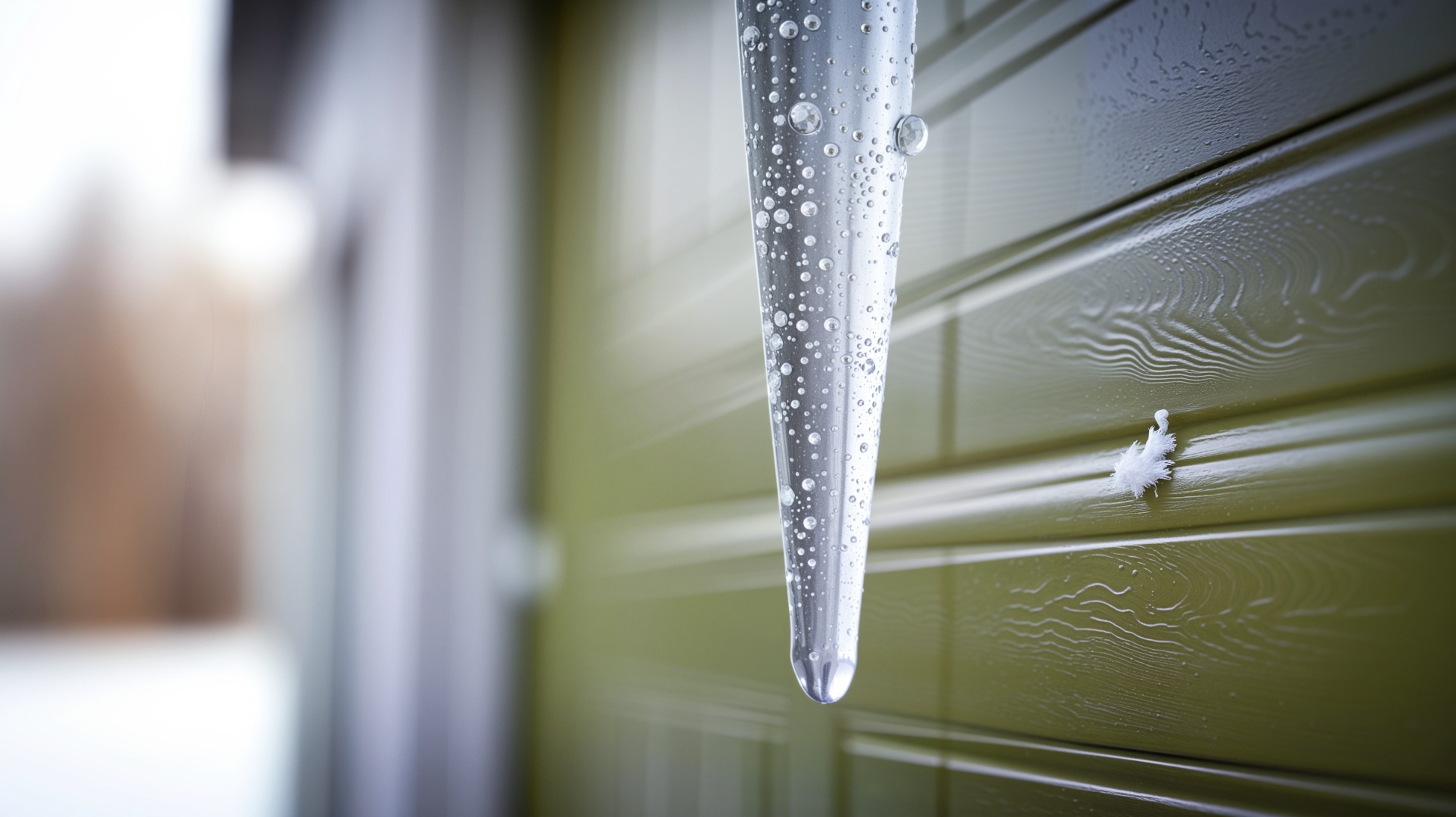When you think of an insulated garage door, you’re probably thinking it would be great to have during the winter. However, there are benefits to be had all year long. Here’s why you should consider an insulated garage door the next time you purchase a new garage door.
What is an insulated garage door?
Insulated garage doors consist of a standard garage door with a layer of insulation. There are three, common types of insulation:
- Fiberglass insulation: Fiberglass is a type of batt insulation. It’s flexible, easy to install, though not as precise of a fill as foam insulation. However, it’s the most affordable.
- Polystyrene insulation: Expanded polystyrene and extruded polystyrene are foam insulation. Expanded polystyrene is lightweight but rigid and composed of polystyrene beads. Extruded polystyrene is also a rigid foam, but it is made using blowing agents, heat, and an extruding machine. You also have the option of a paper backing for increased rigidity.
- Polyurethane insulation: There are two types of polyurethane for insulated garage doors – polyurethane and polyisocyanurate. Both have high levels of energy efficiency and strength. Polyurethane is a spray-on material that foams up to fill up space. Polyisocyanurate is a rigid, closed-cell foam board insulation. Both are resistant to fire, mold and water damage.
Garage Door Guy is partnered with Clopay and Haas Door. Haas uses environmentally compliant polyurethane insulation for their insulated garage doors. Clopay offers their Intellicore insulation which is also polyurethane.
This graphic by Clopay illustrates their belief that polyurethane is the best insulation for garage doors:

Benefits of an insulated garage door
As you can imagine, there are energy efficiency benefits to an insulated garage door. However, the benefits don’t stop there.
- Energy efficiency: The primary, and most well-known, benefit to having an insulated garage door is the improved energy efficiency. The insulation adds a barrier to the outside temperature – both cold and heat. That’s right, garage door insulation will better keep both cold and hot air from infiltrating your garage. It’s important to remember that the temperature regulation benefits work best if you have a fully insulated garage.
- Increased durability: A garage door constructed with a layer of insulation makes it more durable. Not only does it help your door better withstand harsh weather but it can also help protect it against minor collisions. This can help increase your garage door’s lifespan.
- Reduced operating noise: Clopay conducted tests to analyze this fact and found traditional garage doors produced sounds measuring 96 decibels while their Intellicore doors produced sounds measuring 80 decibels. The decibel scale is logarithmic – not linear – so Intellicore insulated doors are actually three times quieter to the human ear.
- Noise dampening: An insulated garage door will reduce both street noise from entering your garage and the noise from inside your garage being audible outside.
- Increased home security: The strength of polyurethane insulation provides a greater capability to withstanding unwanted entry attempts. Even so, if you are worried about preventing garage break-ins, you’ll likely want to invest in other security measures as well.
- Increase in home value: Upgrading your home’s garage door will increase the value of your home and offers a return on investment that typically exceeds 100%.
What does R-value and U-factor mean?
When considering an insulated garage door, you’ll want to consider both R-value and U-factor. R-value measures thermal resistance while U-value measures insulating performance. When considering energy efficiency of a garage door, you’ll want a higher R-value and lower U-factor.
Ready to upgrade to an insulated garage door?
An insulated garage door is a significant and noticeable upgrade over a non-insulated door. The cost increase (around $200+ more) is reasonable and, over time, you’ll save money on that extra investment. You’ll enjoy improved energy efficiency, a longer garage door lifespan, quieter operation, and you’ll see an increase in home value should you ever want to sell your home.
Ready to explore your options for an insulated garage door with Garage Door Guy? Get a FREE quote and buyer’s guide here!



